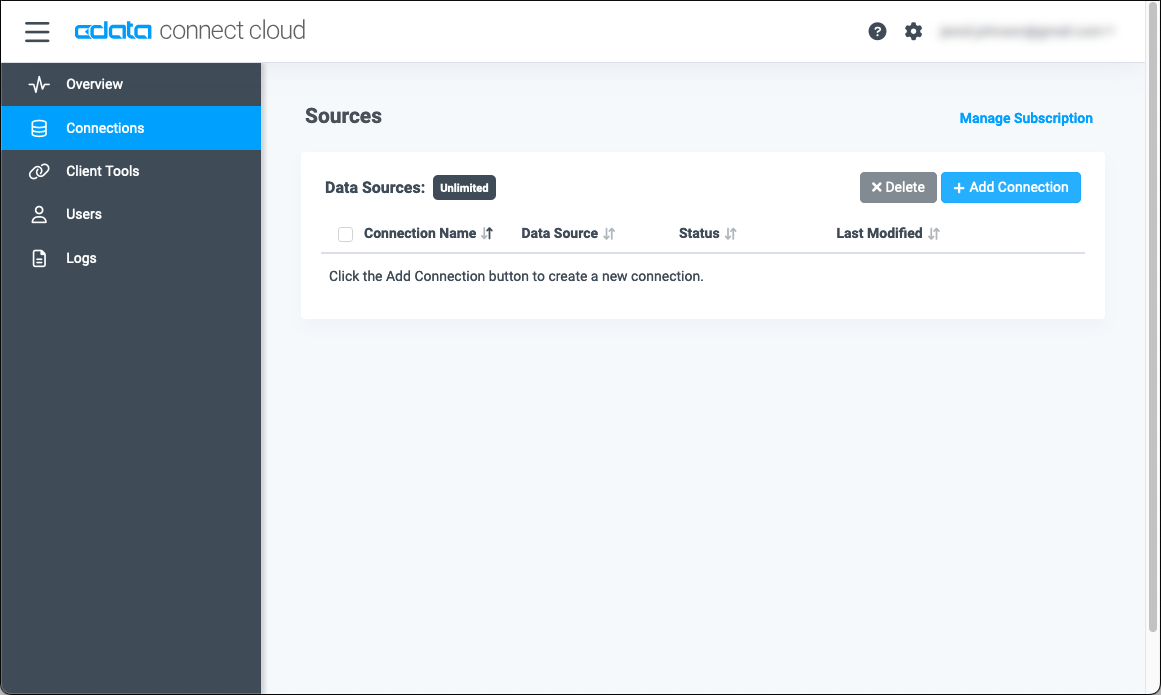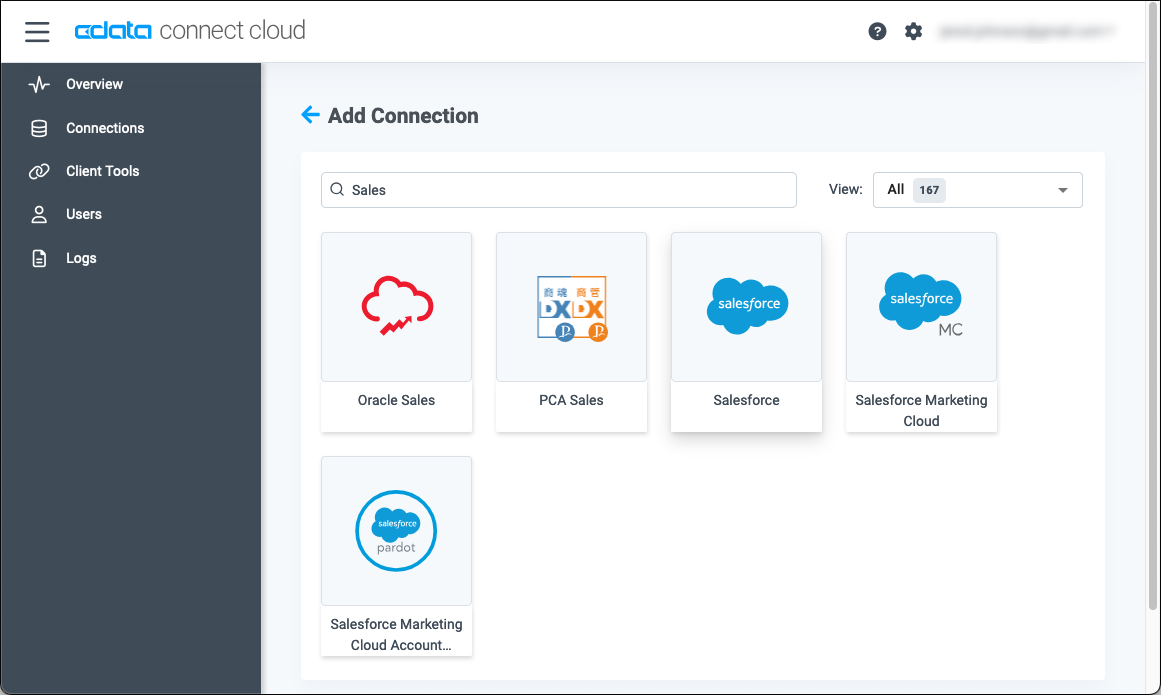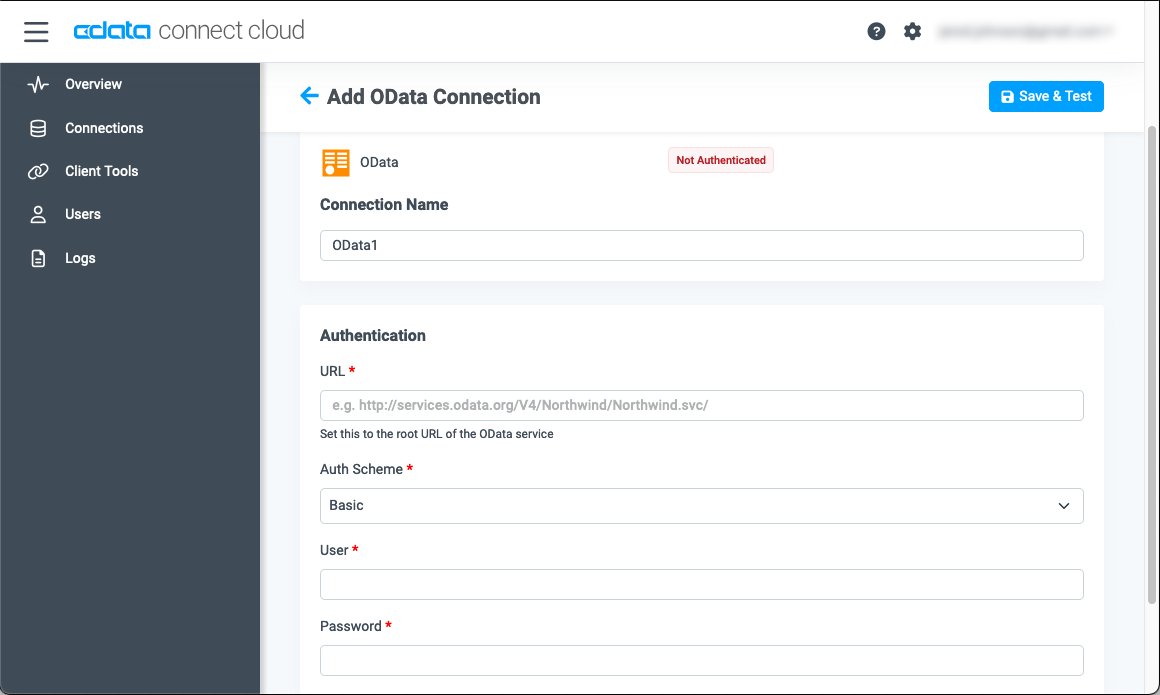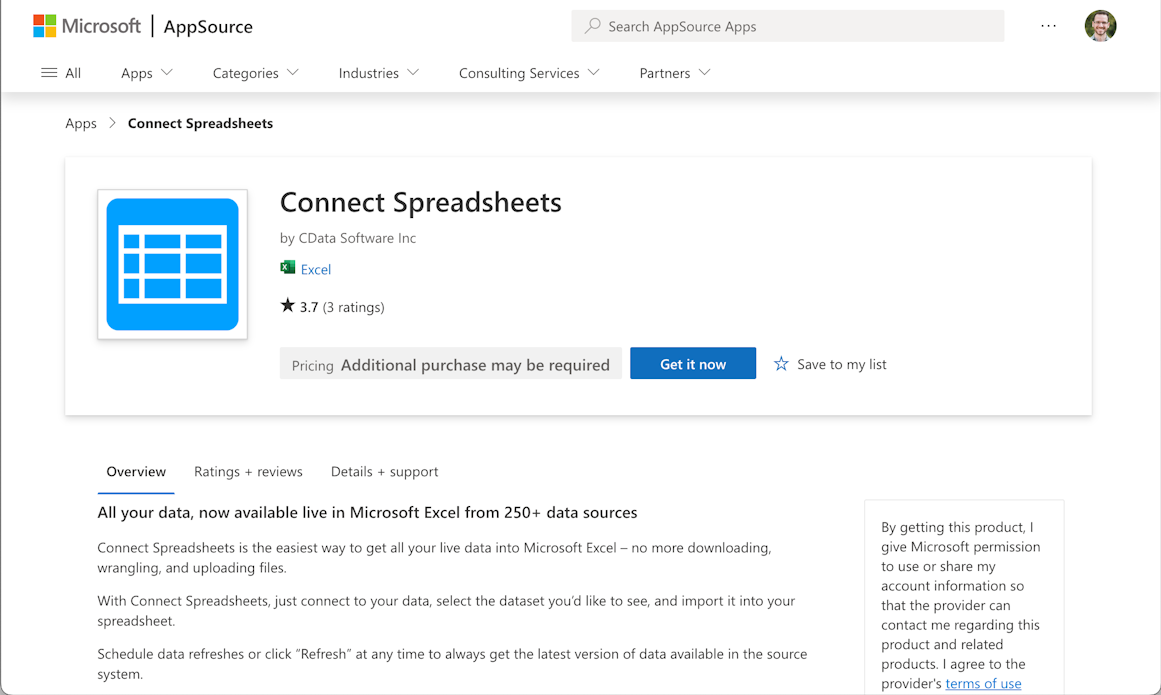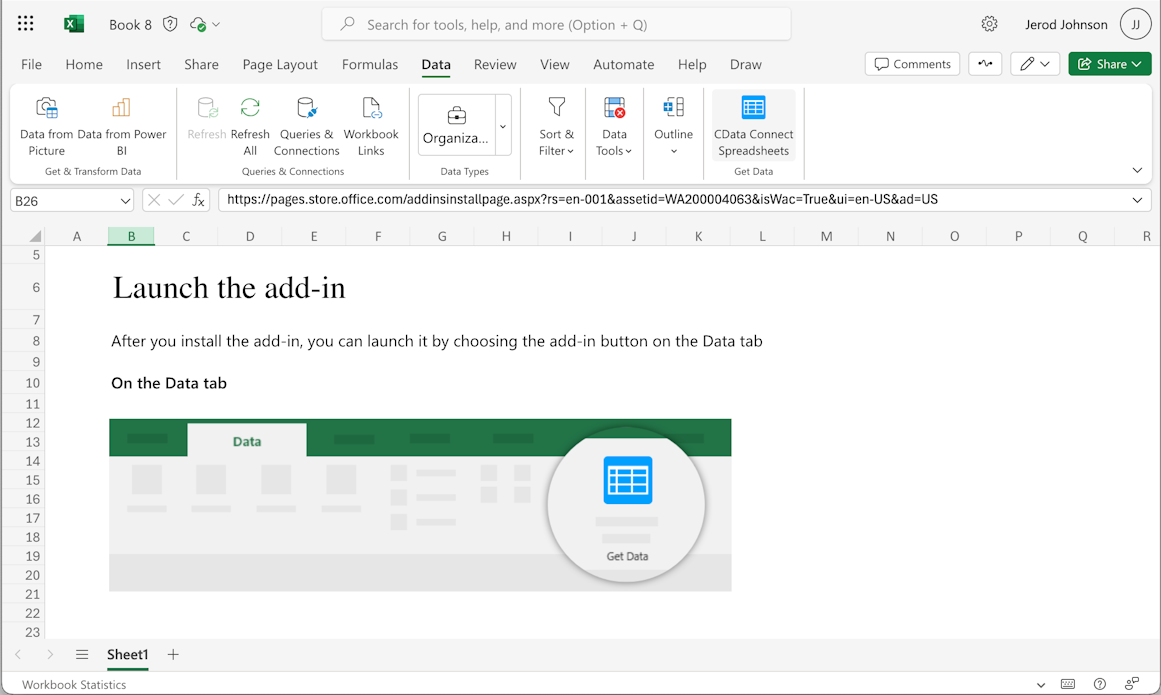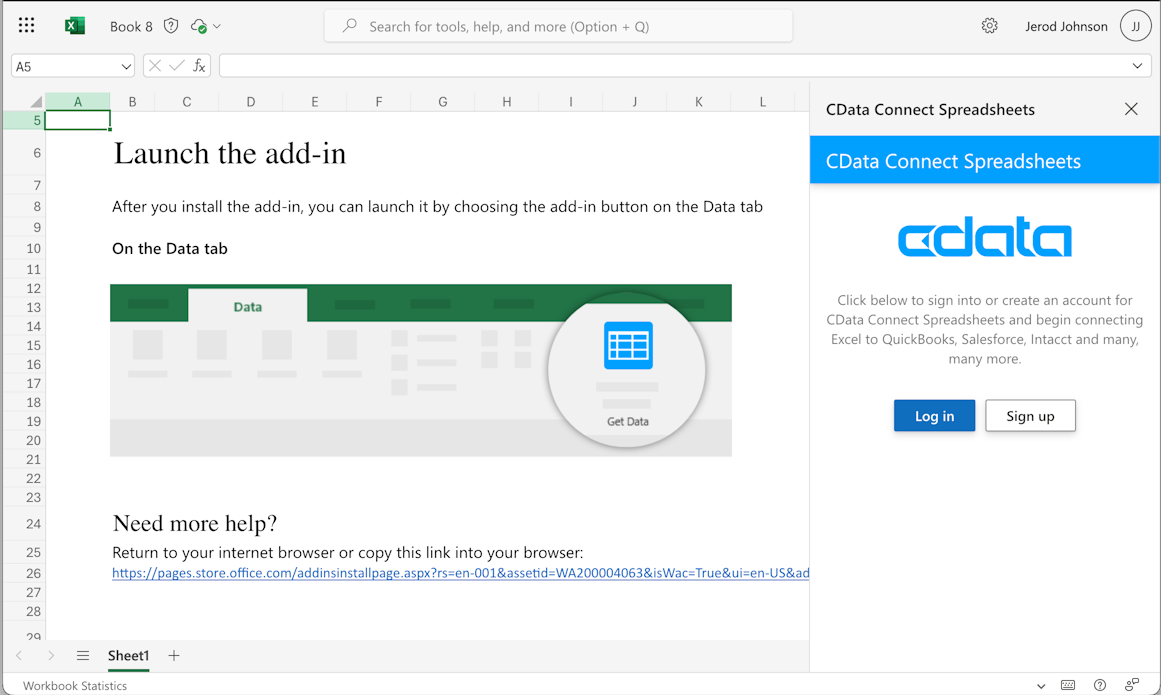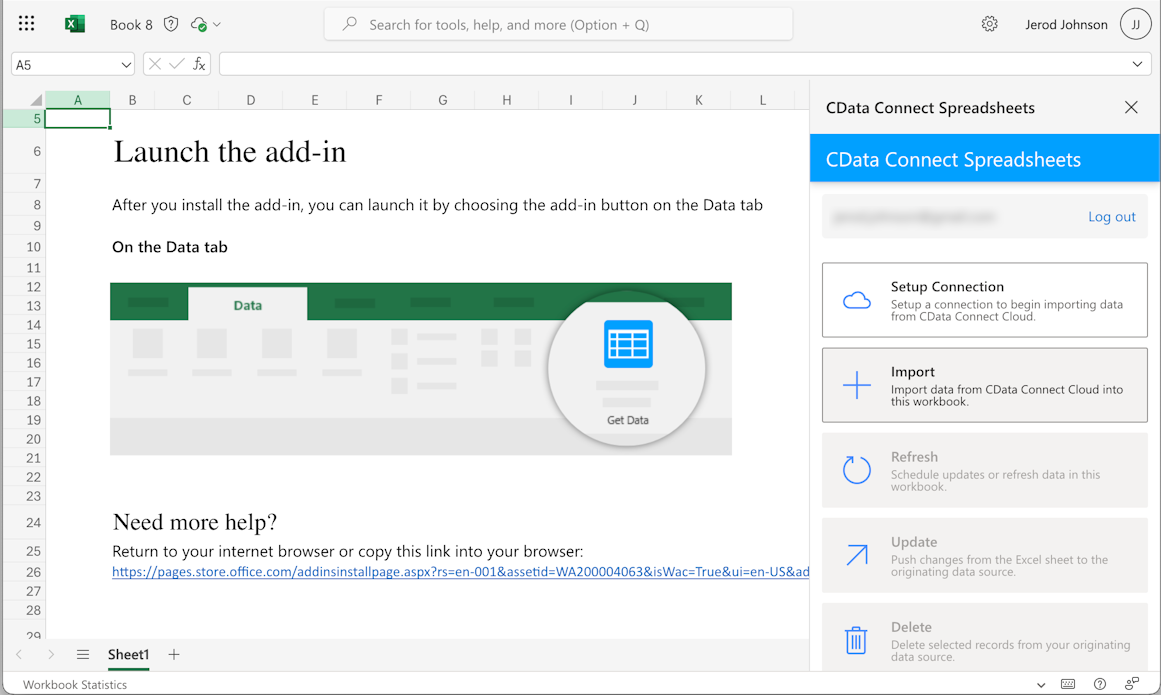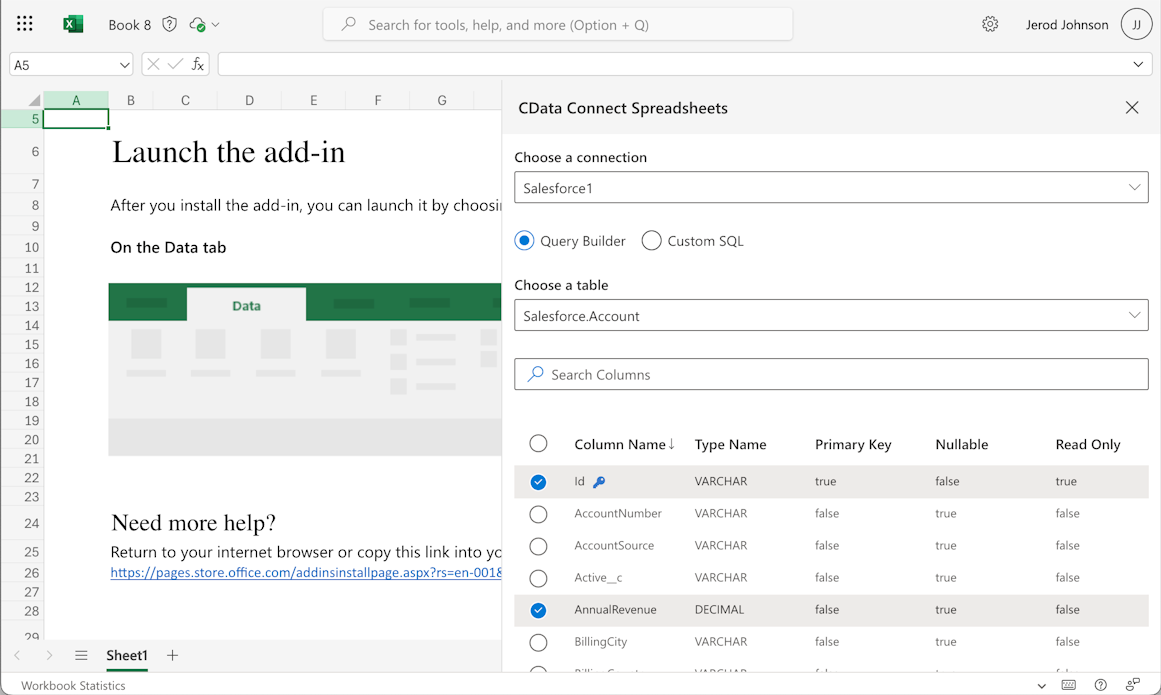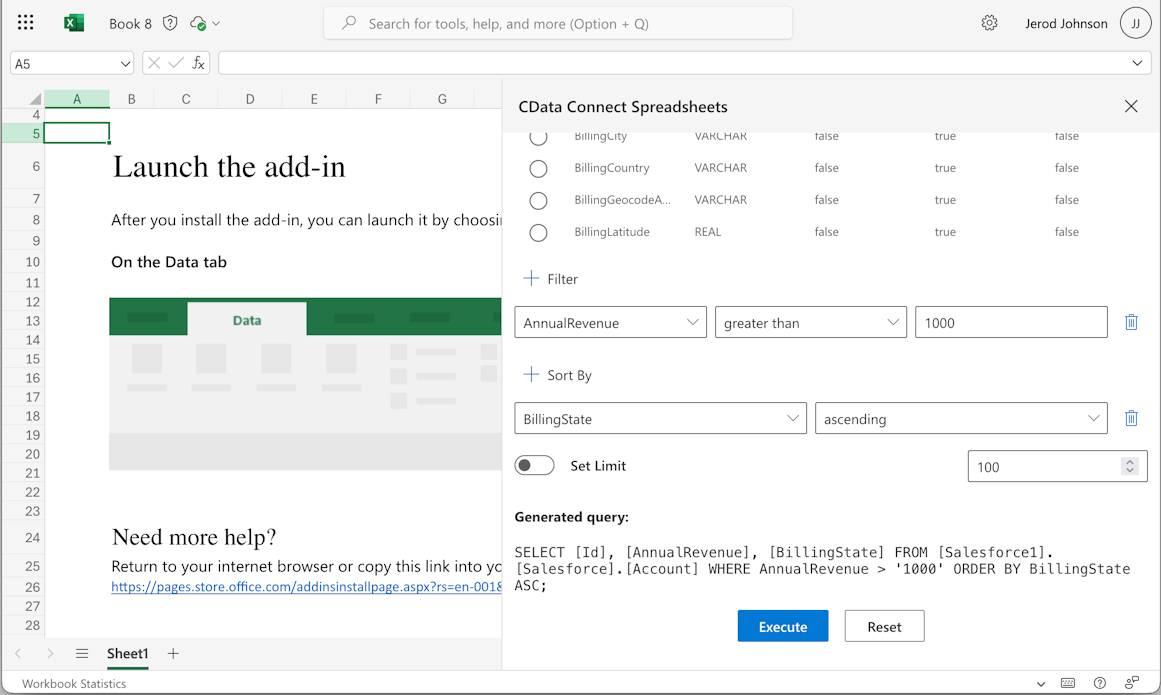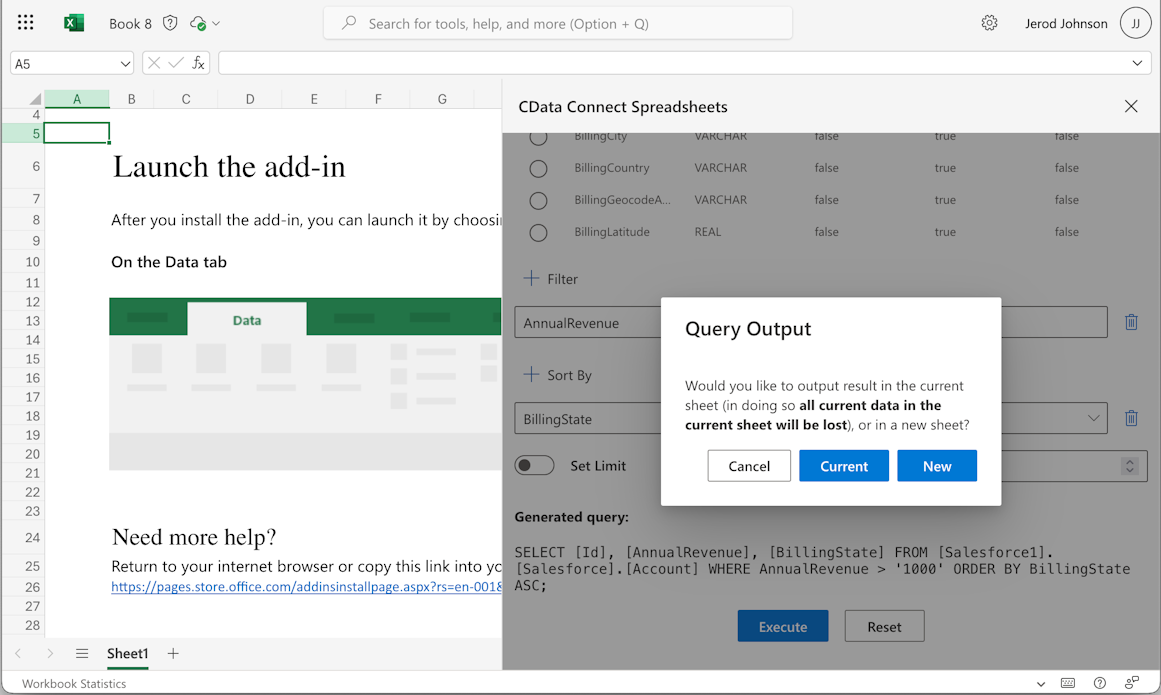Discover how a bimodal integration strategy can address the major data management challenges facing your organization today.
Get the Report →Access Live FHIR Data in Excel for the Web (Excel 365/Online)
Connect to FHIR data from Excel 365 Online (Excel for the web) with Connect Spreadsheets.
Looking for Connect Cloud instructions?
Your Connect Cloud account includes Connect Spreadsheets, so you can use the instructions below. You can expect minor differences when referencing the Connect Spreadsheet platform, but the principles still apply!
Microsoft Excel for the web represents a cloud-native iteration of Microsoft Excel. When combined with Connect Spreadsheets by CData, you gain immediate access to FHIR data directly within Excel, facilitating data analysis, collaboration, calculations, and more. This article shows how to connect to FHIR in Connect Spreadsheets and access live FHIR data in Excel spreadsheets online.
Connect Spreadsheets is the easiest way to get all your live data into Microsoft Excel and Google Sheets - no more downloading, wrangling, and uploading files again. Just connect to your data, select the dataset you'd like to see, and import it into your spreadsheet.
This setup requires a Connect Spreadsheets instance and the Connect Spreadsheets Add-In for Excel. To get started, sign up a free trial of Connect Spreadsheets and install the free Connect Spreadsheets Excel Add-In.
Configure FHIR Connectivity for Excel
Connectivity to FHIR from Excel is made possible through Connect Spreadsheets . To work with FHIR data from Excel, we start by creating and configuring a FHIR connection.
- Log into Connect Spreadsheets, click Connections and click Add Connection
![Adding a Connection]()
- Select "FHIR" from the Add Connection panel
![Selecting a data source]()
-
Enter the necessary authentication properties to connect to FHIR.
Set URL to the Service Base URL of the FHIR server. This is the address where the resources are defined in the FHIR server you would like to connect to. Set ConnectionType to a supported connection type. Set ContentType to the format of your documents. Set AuthScheme based on the authentication requirements for your FHIR server.
Generic, Azure-based, AWS-based, and Google-based FHIR server implementations are supported.
Sample Service Base URLs
- Generic: http://my_fhir_server/r4b/
- Azure: https://MY_AZURE_FHIR.azurehealthcareapis.com/
- AWS: https://healthlake.REGION.amazonaws.com/datastore/DATASTORE_ID/r4/
- Google: https://healthcare.googleapis.com/v1/projects/PROJECT_ID/locations/LOCATION/datasets/DATASET_ID/fhirStores/FHIR_STORE_ID/fhir/
Generic FHIR Instances
The product supports connections to custom instances of FHIR. Authentication to custom FHIR servers is handled via OAuth (read more about OAuth in the Help documentation. Before you can connect to custom FHIR instances, you must set ConnectionType to Generic.
![Configuring a connection (Salesforce is shown)]()
- Click Create & Test
With the connection configured, you are ready to connect to FHIR data from Excel for the web.
Access Live FHIR Data in Excel for the web
The steps below outline connecting to Connect Spreadsheets from Excel to access live FHIR data.
- Log into Excel, create a new sheet (or open an existing one).
- Click Insert and click Office Add-ins. (If you have already installed the Add-In, jump to step 4.)
- Search for Connect Spreadsheets and click "Get it now" to install the Add-in.
![Install the Add-In]()
- Back in Excel, open the Data ribbon select and click the Connect Spreadsheets "Get Data" button.
![Opening the Add-In]()
- In the Add-In panel, click "Log in" to sign into and authenticate with your Connect Spreadsheets account
![Authorizing the Add-In]()
- In the Connect Spreadsheets panel in Excel, click Import
![Connect Spreadsheets panel in Excel]()
- Choose a Connection (e.g. FHIR1), Table (e.g. Patient), and Columns to import
![Connect Spreadsheets panel in Excel]()
- Optionally add Filters, Sorting, and a Limit
![Choosing a Connection, Table, and Columns]()
- Click Execute to import the data
![Executing the Query]()
Live Access to FHIR Data from Spreadsheets
New, you have a direct, cloud-to-cloud connection to live FHIR data from your Excel workbook. You can add more data to your workbook for calculations, aggregations, collaboration, and more.
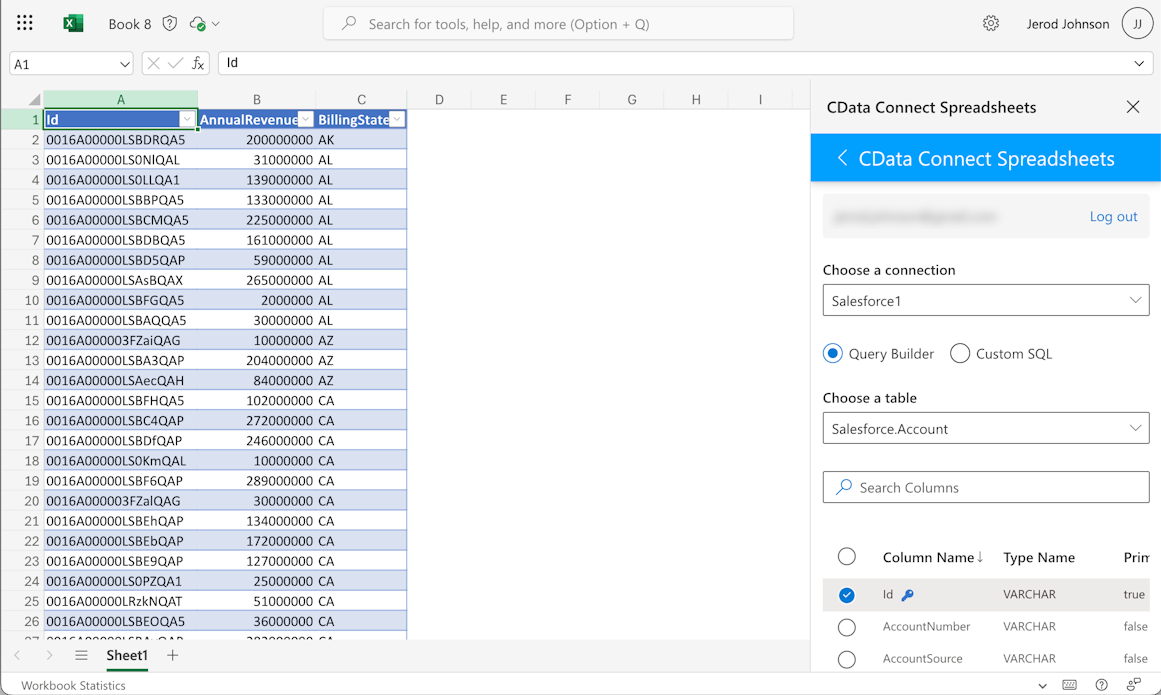
Try Connect Spreadsheets and get real-time data access to 100+ SaaS, Big Data, and NoSQL sources directly from your spreadsheet apps.





